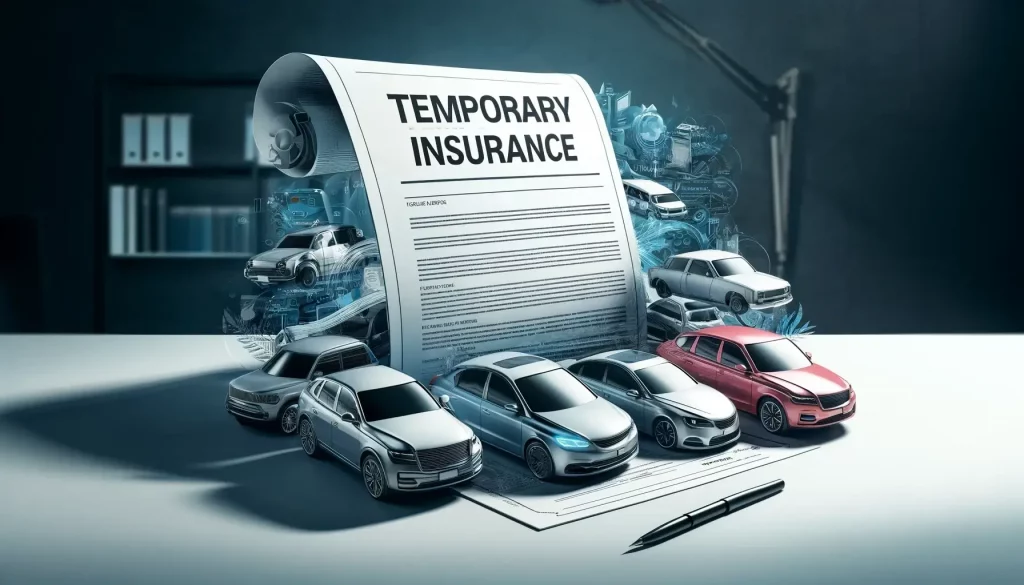Once upon a summer, Emma found herself in a bit of a logistical bind. Her car, a trusty sedan that had seen better days, was finally up for sale.
Just as she posted the listing, her phone buzzed—an interested buyer wanted to test drive the car the very next day. Panic set in. Her current insurance had lapsed, and she needed a quick fix to ensure everything went smoothly.
That’s when she discovered the world of temporary car insurance—a solution that seemed almost tailor-made for her situation.

What You Need to Know About Temporary Car Insurance (PDF)
Understanding Temporary Car Insurance
Temporary car insurance, or short-term insurance as it’s sometimes called, is designed for situations exactly like Emma’s.
Whether you need to bridge a gap between insurance policies, cover additional drivers temporarily, or insure a rental vehicle abroad, temporary insurance can be a suitable option.
Most people, however, will rarely need to use it, but it’s invaluable to know it’s available for those just-in-case moments.
When Do You Need Temporary Insurance?
Here are a few scenarios where temporary insurance proves useful:
- Transitioning Between Policies: If you’re switching providers and there’s a lapse in coverage.
- Occasional Drivers: Covering a family member who drives only during school breaks.
- Selling Your Vehicle: Ensuring that test drivers are insured during the sale process.
- Travel: Renting a car where your standard policy doesn’t provide coverage, such as overseas.
It’s essential to check with your existing insurance policy first, as it might already cover some of these scenarios, potentially saving you the hassle and expense of seeking additional coverage.
Costs and Considerations
Temporary car insurance often carries a heftier price tag when broken down by day, compared to regular policies. This pricing structure is due to the increased operational costs linked with short-term agreements and the challenge for insurers to make significant profits from these brief contracts. Pricing fluctuations are common and depend on various criteria, including your driving history, the vehicle in question, and the geographical location where the car will be operated.
Most major insurers like Allstate, Progressive, and State Farm don’t offer temporary insurance due to its low-profit margins. Therefore, you may need to seek out smaller, specialized companies, which can sometimes be less well-known and potentially less reliable. This necessitates a careful review of what the policy covers and any hidden terms in the fine print.
Alternatives to Temporary Insurance
Major insurers may not offer policies labeled as “temporary car insurance,” but they do provide flexible options that can be almost as accommodating. For example:
- Pay-As-You-Go Plans: Suitable for drivers who use their cars infrequently.
- Cancellation Policies: Some insurers allow you to cancel a longer-term policy early without a penalty, offering a de facto short-term solution.
Conclusion
Temporary car insurance is an often overlooked product that can be a lifesaver in specific situations. While it might come at a premium cost and with its fair share of caveats, the peace of mind it offers in a pinch—like it did for Emma—can be worth it.
Remember to exhaust your existing policy options first and always read the fine print before signing up with a lesser-known provider.
Doing your research can steer you clear of potential pitfalls and ensure that your temporary insurance experience is as smooth as possible.
So, have you ever found yourself in a situation where temporary car insurance could have helped?





